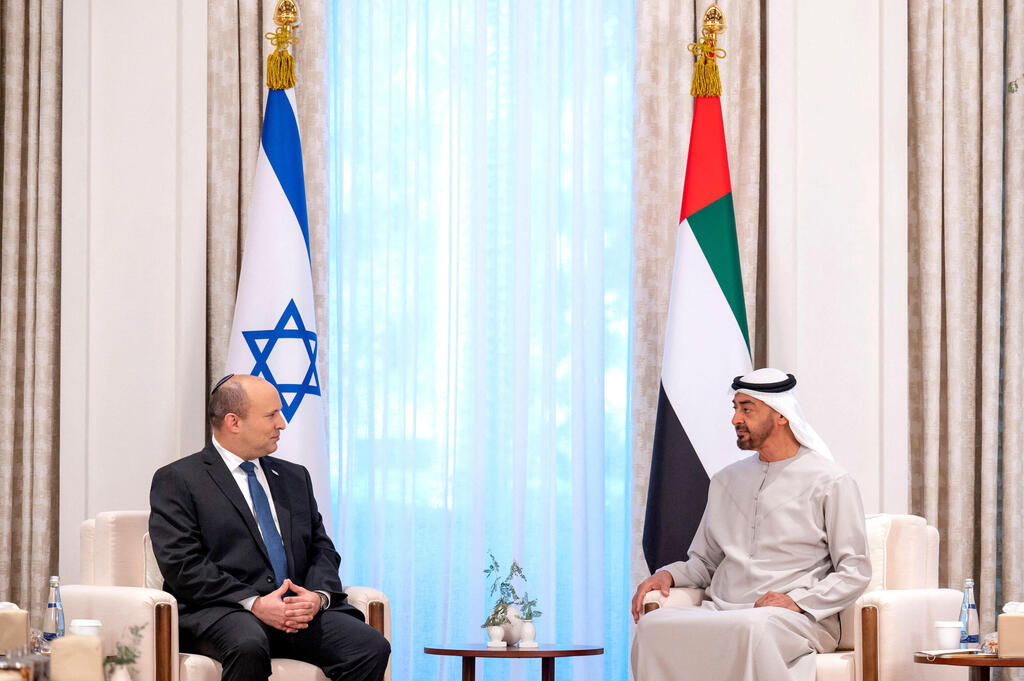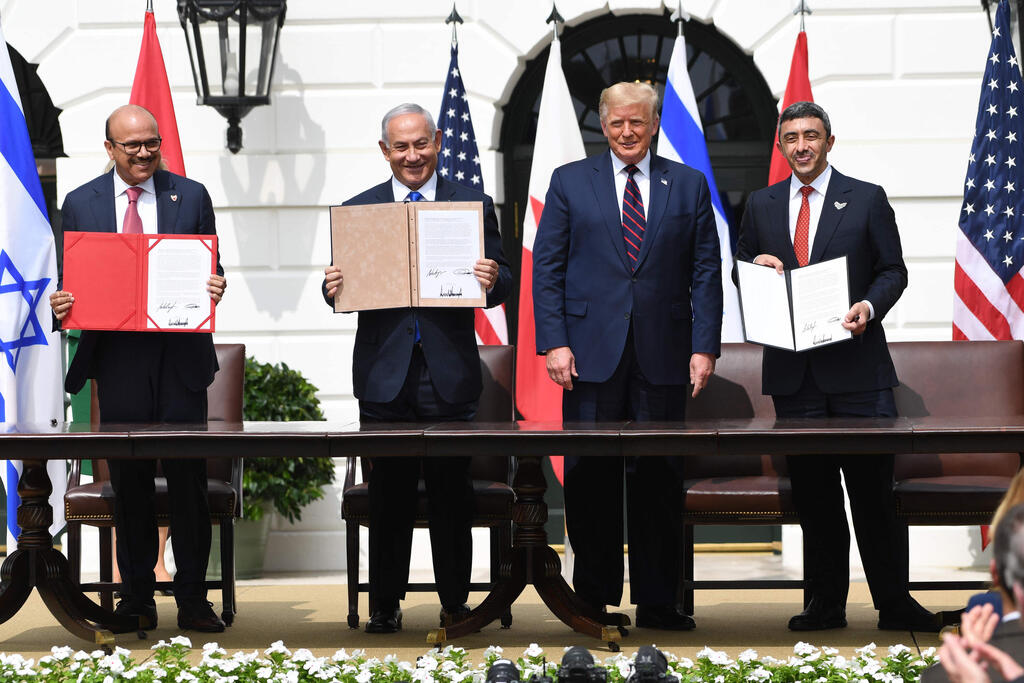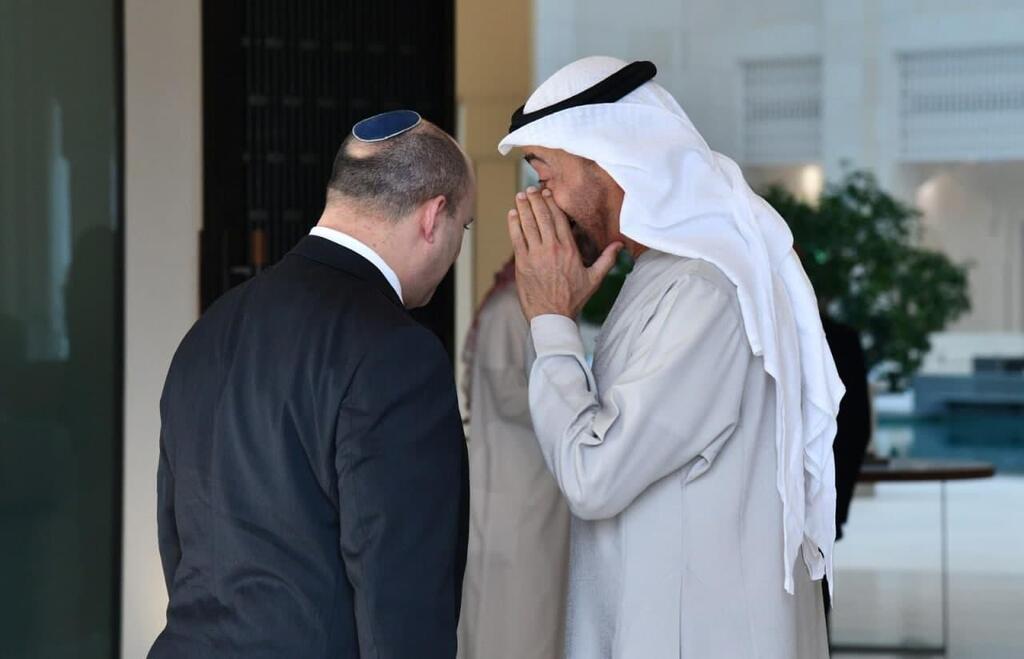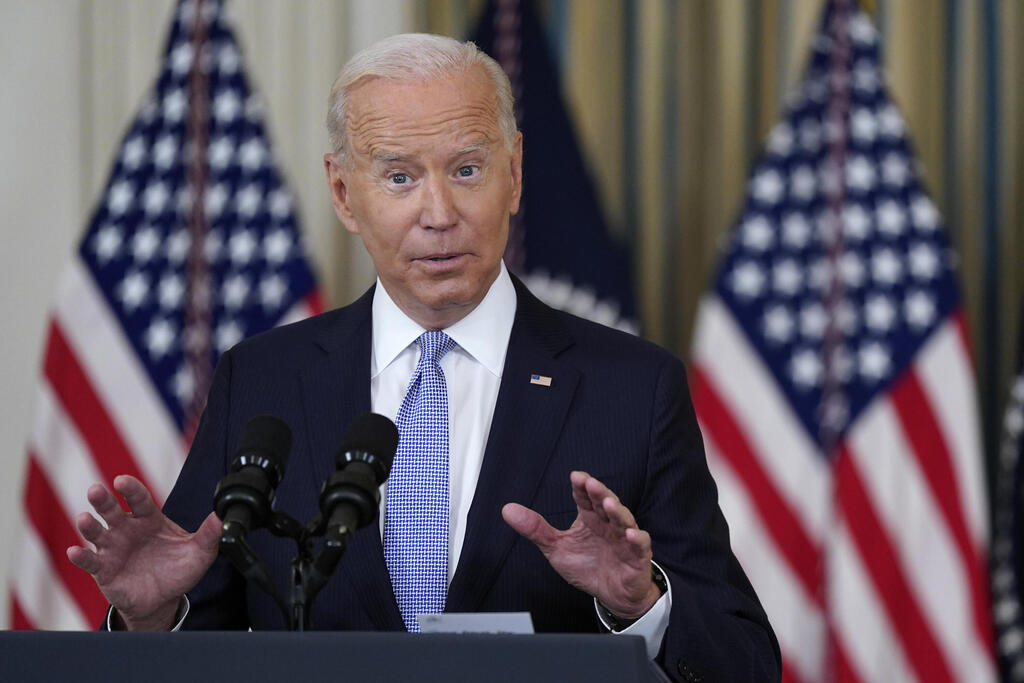Prime Minister Naftali Bennett’s historic visit to the United Arab Emirates and meeting with its crown prince are sending a signal to Iran on Israel’s role as an important player in the region, analysts say.
Bennett met Abu Dhabi’s Crown Prince Mohammed bin Zayed Al Nahyan on Monday, marking the first visit by an Israeli leader to the UAE since the two countries established ties.
4 View gallery


Prime Minister Naftali Bennett with Abu Dhabi’s Crown Prince Mohammed bin Zayed Al Nahyan
(Photo: AFP / UAE's Ministry of Presidential Affairs)
Prof. Joshua Teitelbaum, of the Department of Middle Eastern Studies at Bar-Ilan University, said the visit, in and of itself, is a very important signal from the UAE to Iran and others that the Abraham Accords are here to stay and that Israel’s regional standing has shifted.
“[They] see Israel as a player in the region now,” Teitelbaum said. “This is all within this reshuffling that’s happening in the region. People are now jockeying for position.”
As Washington’s influence in the region wanes, the UAE may be stuck in the middle of competing interests represented by Iran, Israel, and the United States. At the moment, the Emiratis appear to be keeping their options open and hedging their bets.
“We’re no longer in the Cold War; things are a lot more fluid and alliances are changeable,” Teitelbaum said.
4 View gallery


Abraham Accords signing, things are a lot more fluid and alliances are changeable
(Photo: AFP)
The talks, which restarted in late November after a five-month hiatus and resumed on Thursday after a few days’ pause, are aimed at reviving a 2015 deal between Iran and the P5+1 group of world powers: China, France, Russia, the UK, and the U.S., plus Germany.
The U.S. pulled out of the deal under former President Donald Trump in 2018. While President Joe Biden has expressed interest in returning to the agreement, little progress has so far been made.
Israel has pushed against both the talks and easing sanctions on the Islamic Republic. Bennett has accused Tehran of “nuclear blackmail” and warned that any such deal would expose Israel to an existential threat. Several Israeli officials have said that the country may strike Iran’s nuclear facilities if it reaches nuclear breakout status.
“There’s a lot of talks and that’s designed to put pressure on the United States to drive a harder bargain with these nuclear talks,” Teitelbaum said. “In the end, I don’t think Israel and the U.S. are on the same page and I don’t think Israel and the UAE are entirely on the same page, either.
“Israel is the only country that Iran has threatened to wipe off the map,” he added, noting that he is not optimistic that a nuclear Iran can be averted.
Others also viewed Bennett’s visit to the UAE as a key regional development.
4 View gallery


Prime Minister Naftali Bennett with Abu Dhabi’s Crown Prince Mohammed bin Zayed Al Nahyan
(Photo: Haim Zach)
Dr. Brandon Friedman, director of research at the Moshe Dayan Center for the Middle East and African Studies at Tel Aviv University, said that the UAE’s long-term strategy has been to focus on intraregional trade and that he expects economic agreements will take center stage.
“The Emirates since the corona crisis have tried to focus on de-escalation in the region and I don’t think they’re eager to pursue a confrontation with Iran at this point. On that issue, Israel and the UAE seem to be pulling in different directions,” Friedman asserted.
It is possible that the UAE’s crown prince will attempt to take Bennett’s temperature regarding its expectations in relation to its archnemesis Iran. Nevertheless, the Emiratis are currently more concerned with jump-starting economic development.
Interestingly, Friedman highlighted that, although the Abraham Accords were initially framed in terms of the strategic importance of a shared anti-Iran agenda, this no longer appears to be the case.
“What we’ve seen increasingly since the Biden Administration has come into the office is that that element – at least from the Emirati side – appears to be downplayed,” he said. “It looks like the Emiratis are not particularly keen to see a confrontation with Iran anytime soon.”
The Biden Administration’s willingness to engage with Iran and hold negotiations has further catalyzed Iran-UAE rapprochement.
Dr. Yoel Guzansky, a senior research fellow at the Institute for National Security Studies who specializes in Gulf politics and security, believes that the talks in Vienna will result in a new agreement that will change the face of the Middle East for the worse.
“Everybody is worried about Iran but the sensitivities are different,” Guzansky said. Because the Emiratis are positioned much closer geographically speaking to the Islamic Republic than Israel is, the UAE has developed a very complex relationship with Tehran.
“The UAE is a hub for regional trade and helps Iran bypass a lot of the sanctions; for the UAE, this is kind of an insurance policy,” Guzansky argued.
Nevertheless, serious grievances between the two Muslim nations remain, and cannot be overcome.
“Iran will remain the bad boy of the region and even the primary threat to both Israelis and Arab for many years to come,” he said. “It will shape events, alliances, and treatises in the region.”


